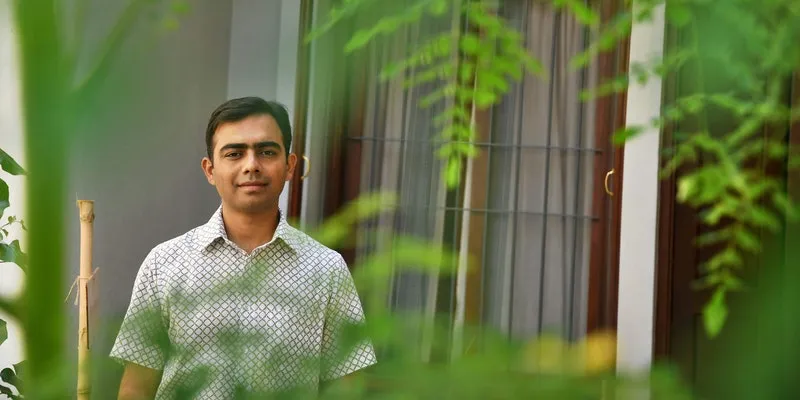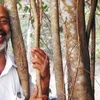With Afforestt, this engineer is painting cities green by growing trees using the Japanese Miyawaki method
As the Founder of Afforestt, Shubhednu Sharma is growing trees using the Japanese method ‘Miyawaki’, which helps forests grow 10 times faster than the conventional way.
The definition of development has changed over the years. With time, it became very infra-centric, turning cultivable land into concrete cities to house our rising population.
But things are changing and several individuals and organisations are working hard to bring back the lost greenery of our planet. Among them is Shubhendu Sharma, Founder of Afforestt, a Bengaluru-based organisation trying to bring back our lost forests. The team uses ‘Miyawaki’, a Japanese method to build a forest on a small patch of land.

(Image: Edex live)
Shubhendu claims that this method helps a forest grow 10 times faster. In short, a 100-year-old natural forest can be grown in 10 years.
Speaking to Edex Live, he said,
“We have a core team of 14 and eight of them are always working on-site. We have set up base in Delhi, Bengaluru, and Jodhpur but we keep travelling to our sites across India and abroad as well. Our next project is in Lebanon and we have an ongoing project in Jammu and Kashmir.”
The Miyawaki method is a concept developed by Japanese botanist Akira Miyawaki. In this method, only native varieties of trees are selected in ratios over the commercial forestry. These are grown in sequence, which requires no maintenance after a period and is 100 percent self-sustainable, reports The Hindu Business Line.

Shubhednu Sharma (Image: Edex Live)
Explaining the process to Edex Live, Shubhendu said,
“The first step in making a forest is to identify the native trees of that region. Then we divide them into four layers — shrub, sub-tree, tree, and canopy. We then go on to analyse the quality of soil and find out which biomass would help enhance the perforation capacity, water retention capacity, and nutrients in it. Then, we dig it as deep as one metre and mix the biomass. A mound is built with the soil and we plant the seeds at a very high density — three to five sapling per square metre and we cover the ground with a thick layer of mulch, we use straw or long grass.”
But for Shubhendu, the environment wasn’t his initial calling. He was working as an engineer in Toyota in Bengaluru in 2009. In 2010, he met Akira Miyawaki who had come to help Toyota build a forest as a part of its CSR initiative. The Miyawaki method was no less than a wonder for Shubhendu, who quit his job and began understanding the method and how to create a green space in a city.
Eventually, he formed Afforestt with a simple concept - transform a piece of land in a city to a forest.
Do you have an interesting story to share? Please write to us at tci@yourstory.com.To stay updated with more positive news, please connect with us on Facebook and Twitter.









